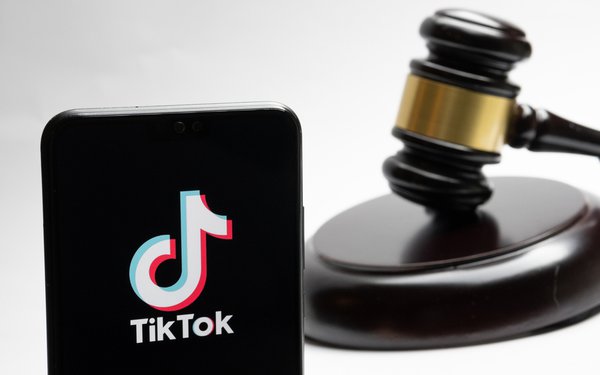
A federal judge has rejected TikTok's bid to
dismiss a lawsuit alleging that it wrongly collected personal information from young children.
In a decision issued late last week, U.S. District Court Judge George Wu in the
Central District of California said he will allow the plaintiffs -- all children under 13 -- to proceed with claims that TikTok violated various laws and privacy standards in the minors' home
states.
The ruling -- originally issued Wednesday as a "tentative" decision, but finalized later in the week -- comes in a battle dating to August 2024, when families of three
young TikTok users claimed the company wrongly collected their personal information. Other families followed with separate class-action complaints, and the cases were eventually combined in front of
Wu. The plaintiffs in the current complaint are citizens of eight states -- California, Connecticut, Florida, Georgia, Missouri, New York, Pennsylvania, and Washington.
advertisement
advertisement
The
first of the lawsuits was filed around one week after the Department of Justice charged TikTok with violating the federal Children's Online Privacy
Protection Act. That law prohibits websites and apps from knowingly collecting personal data of users 12 and under, without parental consent. That matter is currently pending before Wu.
The current version of the class-action complaint, filed with Wu in July, repeats many of the allegations brought by the Department of Justice, and includes claims that TikTok violated
a variety of state consumer protection laws and privacy standards.
"This case concerns the unlawful collection of personal information from which TikTok is able to personally
identify its users," class counsel write, adding that the company allegedly collected names, email addresses, phone numbers, profile images, messages, location data, social network contacts and other
data.
The plaintiffs also alleged that TikTok knew children were lying about their ages in order to gain full access to the platform, instead of creating Kids Mode
accounts.
TikTok urged Wu to throw out the case at an early stage, arguing that even if the allegations were proven true, they wouldn't show that the company violated state
laws or privacy standards.
For instance, the complaint alleged that TikTok engaged in "intrusion upon seclusion," which involves committing "highly offensive" privacy
violations.
TikTok argues that the complaint's allegations, even if proven true, wouldn't show it engaged in highly offensive activity.
"Collecting data
of internet users is of course entirely routine commercial behavior," TikTok argued.
Wu rejected that argument. He essentially said in the ruling that the allegations against
TikTok -- including that it lured children to the platform with "brands, influencers, and content targeted for them," and that it violated the federal children's privacy law -- warranted further
proceedings.